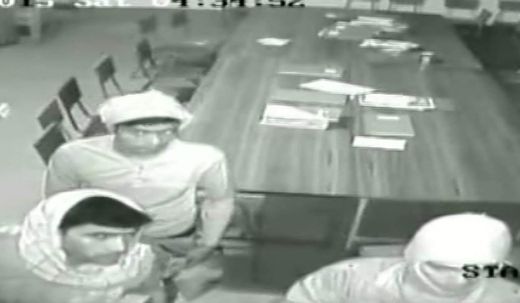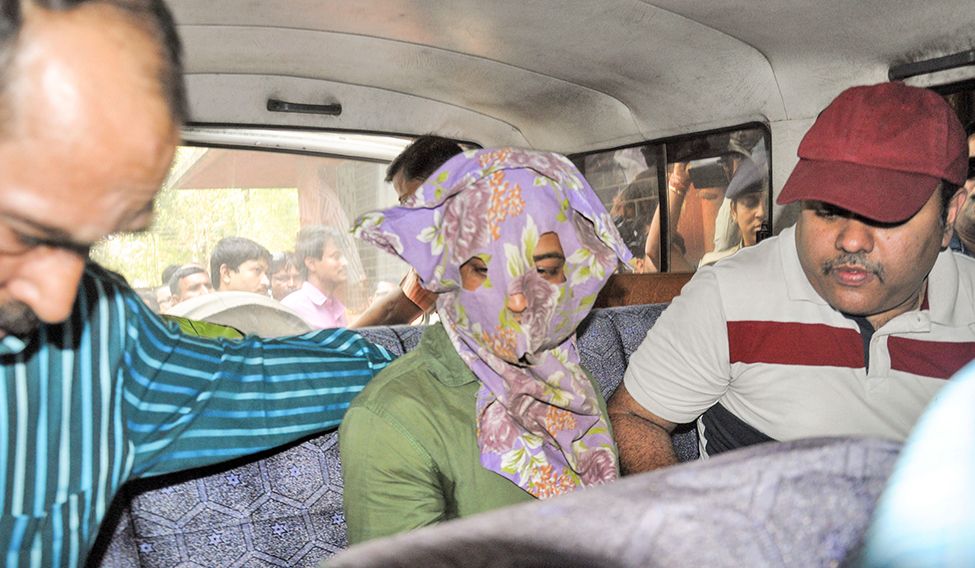Three months ago, National Security Adviser Ajit Doval and Director General Sharad Kumar of the National Investigation Agency visited West Bengal and warned Chief Minister Mamata Banerjee about the danger the state was facing from criminal elements based in Bangladesh. “You are sitting on a volcano,” Doval reportedly told her.
The Ranaghat rape, which took place on March 14, proved Doval right. The Criminal Investigation Department (CID) of West Bengal, which is handling the case in which the Convent of Jesus and Mary High School in Ranaghat was looted and its 71-year-old mother superior was raped, said the crimes were allegedly perpetrated by a gang of criminals from Bangladesh and that they might have committed many more thefts and dacoities, not just in West Bengal, but across the country.
The state police are clueless about a number of dacoities which took place in the districts of Nadia, North 24 Parganas, Burdwan, Birbhum and some districts of north Bengal last year. The search for the culprits, however, has intensified after the Ranaghat case. What worries the police the most is the fact that the gang has possibly fled to Bangladesh and is being sheltered by the Jamaat-ul-Mujahideen Bangladesh (JMB), a terrorist group.
“We have information that the gang has fled to Bangladesh. However, we are unable to get information about who is sheltering them,” said Dilip Adak, deputy inspector general of the CID. Another CID officer, however, confirmed that the gang was protected by the JMB. The CBI, which did an initial investigation in the case, too, said the gang had fled to Bangladesh and were being sheltered by the JMB. The agency, however, is no longer handling the case. “We are not the fittest agency to deal with this crime,” said a CBI official.
Government sources said the CID would move the ministry of external affairs for permission to travel to Bangladesh for nabbing the suspects. However, if permission is not granted, then the investigation could be handed over to the NIA, which had sent its agents to Bangladesh last year to investigate the Burdwan blasts.
The CID has made some progress in the Ranaghat case by arresting two suspects. A CID team aided by the Mumbai crime branch arrested Mohammad Salim on March 26 from Mumbai. Adak said Salim fled to Mumbai with a part of the money looted from the school. The CID also arrested North 24 Parganas resident Gopal Sarkar, who allegedly helped the gang enter the school.
THE WEEK, in its issue dated March 29, had reported that a group of construction labourers had some issues with the mother superior. Gopal used to work in the school and knew that a large amount of money was kept there, according to CID sources. They said the gang was part of a major Bangladeshi racket in the state and might have committed similar crimes in many parts of the country.
 CCTV grab of some of the accused in the case.
CCTV grab of some of the accused in the case.
An official from the Intelligence Bureau said the JMB has been sheltering such gangs for a share of the booty, which was a major source of income for them. “However, it was really surprising that they raped a nun and beat up others. We still do not know what prompted them to rape the elderly woman while they spared the relatively younger nuns,” he said. A CID officer said the mother superior was targeted for resisting the gang. “She even threatened to beat them up. The old woman abused them verbally which must have antagonised them,” he said.
The police said only Salim raped the mother superior after taking her to a different room. Salim denied the charge and said some other member had raped her.
For the Mamata government, the challenge now is to tackle without delay the network of Bangladeshi gangs in the state. The manner in which these groups have created terror modules in West Bengal and Assam has stunned intelligence officials. The CID, however, said it had only a limited role, while the state government blamed the Border Security Force for failing to control infiltration.
According to BSF estimates, about three crore Bangladeshis live in India illegally. “Are they staying in India because of us?” asked a senior BSF official. West Bengal shares a 2,100-km long border with Bangladesh, of which 300km are open. S.P. Tiwari, deputy inspector general of the BSF’s South Bengal frontier, said although they were trying hard to resolve the issue of fencing, they had not been successful, yet. “There are vast areas where we have river borders. We cannot solve the infiltration issue without the help of the state government,” he said.
The international border close to Ranaghat, which is just 12km from the convent, is open since fences could not be erected there because of land problems and legal issues. The gang which attacked the nun reportedly took advantage of it and fled to Bangladesh. But the precision and speed with which it operated have surprised security experts. The gang members met no resistance on their way back. They allegedly split into two groups. While the big group went back to Bangladesh, the rest took a train to Mumbai.
The CID is not convinced that Salim went to Mumbai alone. With the help of the Mumbai Police, they are looking for more information. “We are trying to find out details about his meetings there and the true purpose of his visit,” said Adak. “We have the full list of criminals involved in the Ranaghat raid.”







